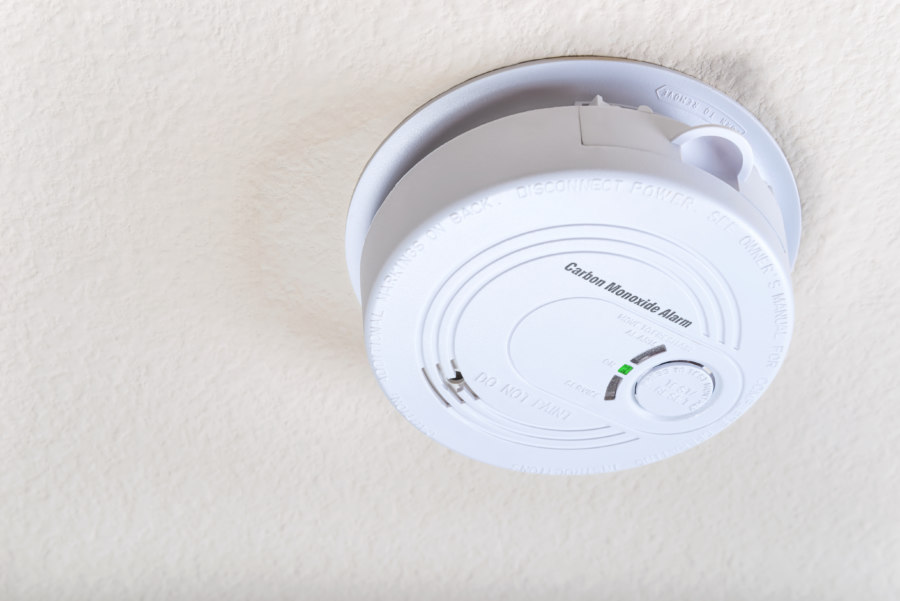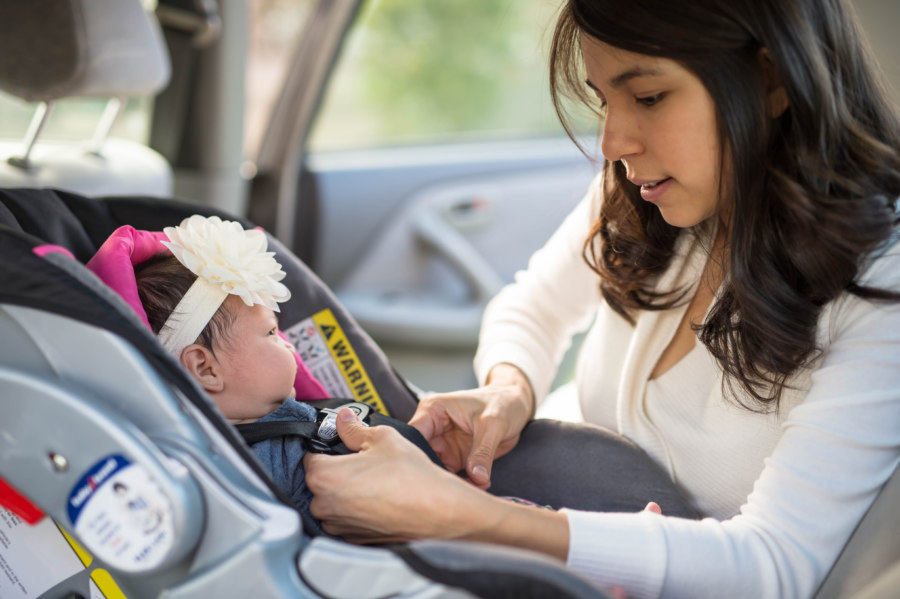Garages and vehicles can be packed full of objects and hazards that can pose a great danger to infants.
Inside the Garage
Carbon Monoxide
Among the most important safety issues regarding vehicles and the garage environment is the presence of carbon monoxide. Carbon monoxide is a colorless, odorless gas that is produced from cars, gas furnaces and water heaters, and other engines/burning materials that is poisonous in large quantities. Due to the increased metabolic rates of young children, they are at an increased risk of carbon monoxide poisoning, and as such additional precautions should be taken to protect children from carbon monoxide. Spaces such as the garage present an increased risk of carbon monoxide hazard since ventilation is usually poor when the door is closed. Having a carbon monoxide detector in your garage and the main living area of your home is recommended to ensure levels remain at safe amounts, and to alert you when they rise above these levels.

Additionally, take stock of the items in your garage to make sure there are no hazards of sharp objects, poisonous chemicals, electrocution hazards, or other dangers within reach of your infant. Doors to the garage should also have door handle locks installed to prevent infants from entering.
Inside the Vehicle
Car Seats
The American Academy of Pediatrics recommends that infants under 2 years are placed in rear-facing car seats, until they reach the maximum height and weight for their seats. Studies and new research strongly support the use of rear facing car seats, as they greatly increase survival in crashes by distributing the energy of a crash more effectively over the body and stabilizing the head and neck. After a child has reached 2 years of age or outgrown the height and weight ratings of their car seat, they can be transitioned to a forward-facing seat with a harness, and finally to using a booster seat to ensure that the seat belt fits properly. Booster seat use will be needed by most children until they are between 8 and 12 years old.

Heatstroke
Lastly, never leave an infant or child in a car unattended, as temperatures can reach up to 125 degrees within minutes on a sunny day, potentially producing heatstroke and death. Cracking the windows does not decrease the risk of heat stroke, and children and infants overheat much fast than adults.

